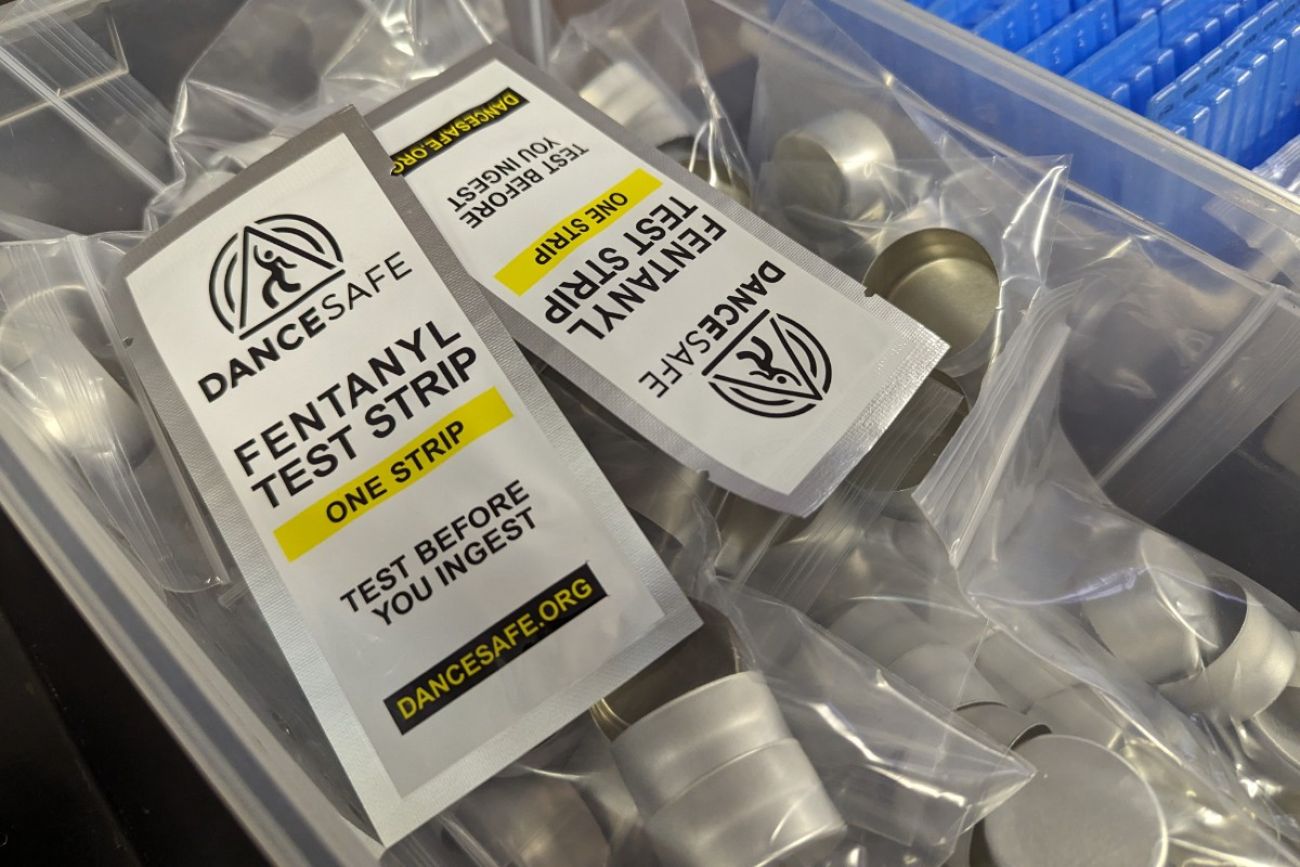A push to legalize drug test strips, protect 'harm reduction' tactics in MI

- Syringe access programs can curb the spread of disease by offering people with substance-use disorder clean drug supplies
- Other ‘harm reduction’ measures include drug test strips that alert users to the presence of other drugs—notably fentanyl
- A proposed change in state law would clarify that the testing kits are not considered drug paraphernalia
Michigan lawmakers are considering two measures that — while not preventing people from taking drugs — would make drug use less harmful to them.
House Bill 5178 would give broader legal protection to programs that supply drug users with clean syringes.
Another measure, House Bill 5179, would decriminalize drug test strips that supporters say help users determine what’s in their supply — including potentially deadly fentanyl — and possibly save their lives.
The objective of both is harm reduction — the idea of reducing risk by acknowledging that “just say no” isn’t always an effective tactic in the fight against opioids and other drugs.
Related:
- Fighting Michigan's opioid crisis with new needles, purer drugs, respect for addicts
- There’s a proven way to help kick opioids. Not enough in Michigan use it
- Michigan taps opioid funds for tiny drug victims — babies in withdrawal
The bill to provide more protection for staff and volunteers at syringe access programs has proven more controversial in its first iterations. It would more explicitly protect staff and volunteers in syringe access and related harm reduction efforts. While those access programs are legal, the change would explicitly immunity from prosecution and provide blanket immunity from prosecution under those provisions for program workers or participants.
Its sponsor, Rep. Carrie Rheingans, D-Ann Arbor, acknowledges that the bill continues to be tweaked to make it more palatable to law enforcement.
Rheingans said one of the first concerns was addressed early.
In the initial bill, volunteers or staff of such programs were to be immune from prosecution if they were found with drugs. Workers and volunteers sometimes handle used paraphernalia, Rheingans said. In the newest draft, that has been reduced to protecting workers and volunteers if they have “trace or residual” amounts.
Still in discussion, she said, is precisely how far could immunity extend outside the physical location of a syringe-access program.
Syringe access programs are often talked about as a “brick and mortar place where it stores all of its supplies” or a mobile outreach van, she said.
“But sometimes we need to do outreach at a place that isn't necessarily a program site,” she said. Could a volunteer working at a homeless shelter be protected, for example?
Working out the kinks is critical to saving lives, said Rheingans, who has a background in public health and first presented the case for the law change last fall.
Such programs aren’t without controversy, though. Some worry that programs attract crime to the neighborhoods around them and that needles are discarded carelessly as they’re replaced with new ones. Others say programs enable and condone drug use, undercutting anti-drug campaigns and police efforts.
But research also has shown that such programs curb the spread of communicable diseases.
They also provide nonjudgmental space for people with substance-use disorders — space in which they may decide to move into treatment, Rheingans said. They also may distribute lifesaving naloxone, which reverse overdoses. They can offer treatment services and referrals, onsite testing, vaccination, education and information services, wound care from drug use, and other health care services.
Some research has found that newcomers to syringe programs are five times more likely to enter drug treatment and three times more likely to stop using drugs than those who don’t access those programs, according to the U.S. Centers for Disease Control and Prevention.
The efforts have at least preliminary backing from members of the state’s Opioid Task Force. In a meeting earlier this month, a task force subcommittee assigned to make recommendations in harm reduction spending recommended support for the two bills as a top priority for the state.
See what new members are saying about why they donated to Bridge Michigan:
- “In order for this information to be accurate and unbiased it must be underwritten by its readers, not by special interests.” - Larry S.
- “Not many other media sources report on the topics Bridge does.” - Susan B.
- “Your journalism is outstanding and rare these days.” - Mark S.
If you want to ensure the future of nonpartisan, nonprofit Michigan journalism, please become a member today. You, too, will be asked why you donated and maybe we'll feature your quote next time!





